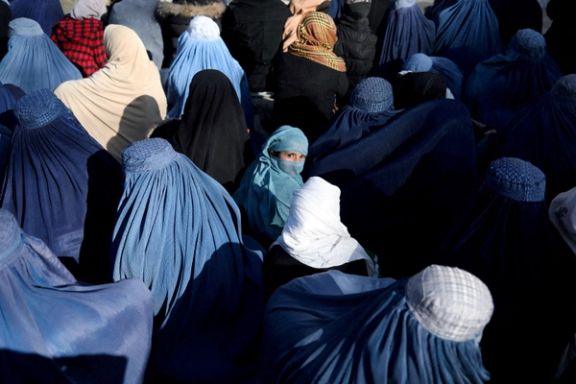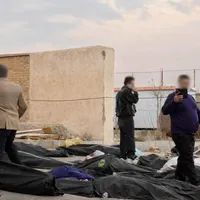The human rights group condemned the forced return of more than one million Afghans from Iran so far in 2025, including unaccompanied children, dissidents, journalists, and human rights defenders—many of whom face serious threats under Taliban rule.
“All countries, including Iran, must recognize Afghan women and girls outside Afghanistan as prima facie refugees,” Amnesty said in a social media statement.
“Returning them to Afghanistan, where the Taliban are committing the crime against humanity of gender persecution, is a clear breach of the principle of non-refoulement," a concept which under international law prohibits returning anyone to a country where they would be at real risk of serious human rights violations.
The deportations have accelerated sharply in the aftermath of Iran’s 12-day conflict with Israel, with Iranian authorities citing national security concerns and alleged espionage ties to justify the crackdown.
According to the UN’s International Organization for Migration (IOM), more than 546,000 Afghans have been expelled from Iran since June 1.
Amnesty said Iranian authorities have uprooted men, women and children in home raids, street searches, and arbitrary detentions, often leaving them with nothing but the clothes they were wearing.
The deportation drive has intensified following a directive from Iran’s national police command stating that “all unauthorized foreigners must exit the country.” Brigadier General Ahmad-Ali Goudarzi, Iran’s border police chief, warned that any homes rented to Afghans would be seized.
On state television, Interior Minister Eskandar Momeni said some Afghan migrants had entered the country “with a specific intent to carry out sabotage operations” during the recent conflict with Israel.
Iranian media have aired forced confessions from individuals identified as Afghans allegedly involved in Mossad-linked operations. Rights groups say these accusations are unverified and often coercively extracted.
The UN and rights organizations have raised alarm over the humanitarian impact. UNICEF reports that over 5,000 unaccompanied minors are among those returned. The Red Cross has warned that as many as one million more Afghans could be expelled by year’s end.
In Herat and other Afghan cities now absorbing the influx, humanitarian organizations report a severe lack of food, shelter, and healthcare. Taliban officials themselves have described the situation as a looming crisis.
Anger over the expulsions has spilled over into Afghan social media, with users calling for a national boycott of Iranian goods.
Despite growing international concern, Iranian officials have stood by the crackdown, arguing that mass migration has overwhelmed the country’s infrastructure and that deportations are necessary to preserve national security and jobs.
Iran hosts millions of Afghan nationals, including an estimated 780,000 with official refugee status. But many more are undocumented workers who fled economic collapse or Taliban persecution after 2021.
Amnesty and other rights groups are urging Tehran to immediately end forced deportations and allow international agencies to monitor the process. “The world must not stay silent as Afghan women and girls are pushed back into repression and violence,” the organization said.













